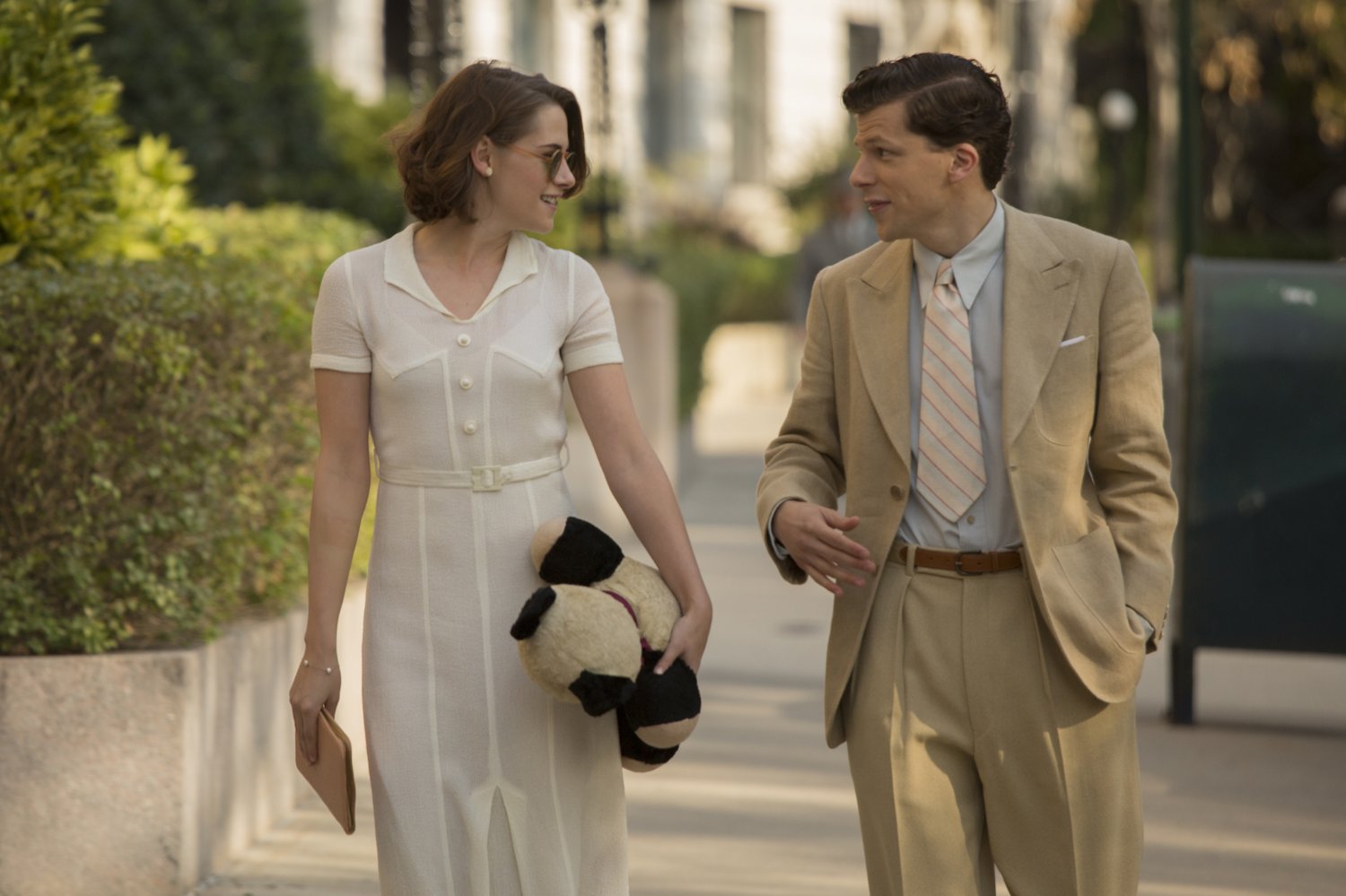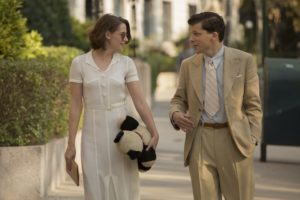This latest Woody Allen flick is sort of an anthology of many of his themes and preoccupations: a comical cosmic pessimism (the alleged meaningless of life, the inevitability of death), the irrationality and vagaries of human desires (especially romantic desires), Jewish culture. confrontation with moral culpability. the contrast between California and New York City Perhaps the only element lacking is the zaniness of some of his (especially early) comedies.
Like his 2011 Midnight in Paris –a superior film in every way–this is set in the past, in this case 1930s Hollywood, A young man. Bobby Dorfman (Jesse Eisenberg) leaves his father’s business in New York City to seek his fortune in Hollywood. He takes a job with the actors’ agency of his mother’s brother Phil Stern (Steve Carell). The third central character is the woman both uncle and nephew come to love, Vonnie (Kristen Stewart). Each of the three has a divided heart, Phil is married and fond of his wife, Bobby eventually marries and is find of his wife, Veronica (Blake Lively). Vonnie is attracted to both Bobby and Phil. Each of them experiences the limitlessness and unruliness of human passions. Mr. Allen is an honest describer of this aspect of the human condition though is not a reliable moral guide (nor does he, I think, necessarily set himself up as the latter). This central plot is serious though humor is not absent in the handling of it. Mr. Allen keeps one wondering how the romantic triangle will be resolved and the ending of the film is believable. The secondary characters are mostly shown in a comic vein including Bobby’s older gangster brother Ben (Corey Stoll). This film breaks no new ground in Woody Allen’s filmic universe but is a solidly entertaining film for those who enjoy his work. In a way, it is like a much less sophisticated and subtle Eric Rohmer film.


